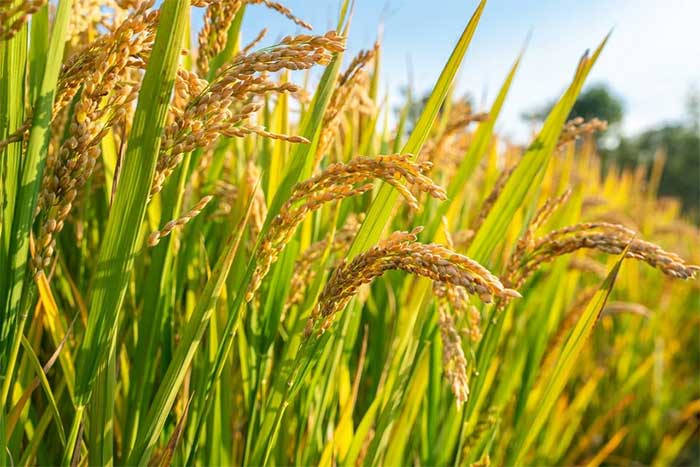Research by Chinese scientists indicates that wild rice was prevalent in the lower reaches of the Yangtze River approximately 100,000 years ago, laying the groundwork for the later use and domestication of rice.
On May 24, a team of Chinese scientists revealed the continuous evolutionary history of rice over 100,000 years, evolving from a wild plant into the cultivated varieties we have today.
According to the study, the cultivation and domestication of rice, a staple food for billions of people worldwide, significantly influenced the development of Chinese civilization.

Humans began cultivating rice about 13,000 years ago. (Source: CFP).
The research team, led by Professor Lyu Houyuan from the Institute of Geology and Geophysics at the Chinese Academy of Sciences, conducted a systematic study of phytoliths – silica structures formed in plant species that hyperaccumulate silicon, in both wild rice and domesticated rice, as well as in the soil.
The study found that the increase in the number of fish-scale-shaped structures on bulliform phytoliths correlates with the characteristics of the domestication process.
Based on these findings, they developed a standard to differentiate wild rice from domesticated rice. Accordingly, wild rice was prevalent in the lower reaches of the Yangtze River about 100,000 years ago, laying the foundation for the later use and domestication of rice.
About 24,000 years ago, coinciding with the onset of the Last Glacial Maximum, human ancestors began to collect and utilize wild rice.
This adaptation allowed them to seek new food sources in the harsh, cold climate.
Humans began cultivating rice around 13,000 years ago, with a rapid increase in density occurring about 11,000 years ago.
One of the study’s authors, Professor Zhang Jianping from the Institute of Geology and Geophysics, stated that the research discovered that the beginnings of rice agriculture in East Asia and wheat agriculture in Southwest Asia occurred simultaneously, marking a significant milestone in human development history and providing deeper insights into the global origins of agriculture.
The development process of rice over 100,000 years, culminating in domestication, illustrates the complex interrelationships between rice, climate, human practices, and cultural evolution.
The findings published in the journal Science shed light on the evolutionary process between humans and rice, the development of human society, and the origins of agricultural civilization.



















































